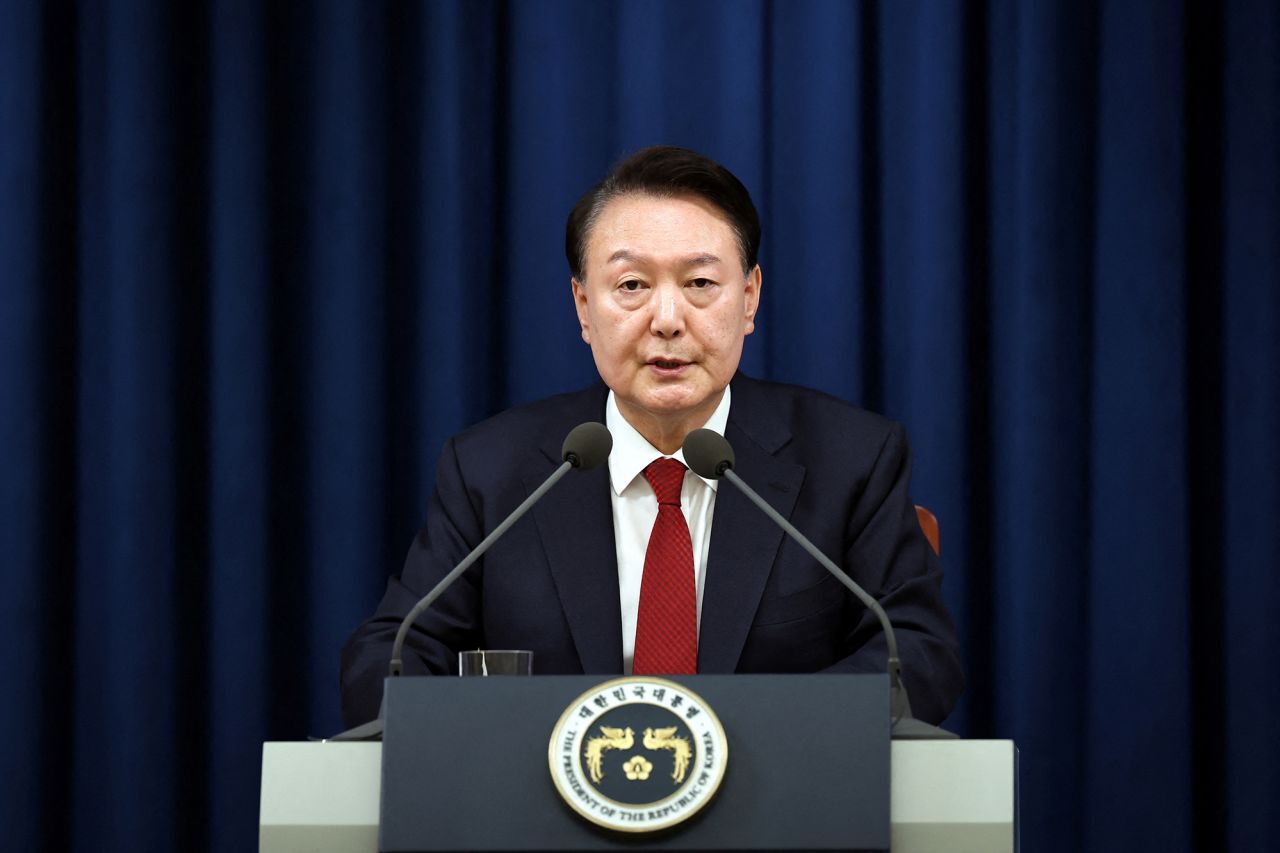The political turmoil in South Korea has escalated following a call from the leader of the ruling People Power Party (PPP), Han Dong-hoon, for the immediate suspension of President Yoon Suk Yeol. This follows Yoon’s short-lived martial law declaration and accusations that he ordered the arrests of key politicians during the incident.
Han initially sought to block Yoon’s impeachment but reversed his stance after confirming these allegations. He emphasized that suspending Yoon is necessary to prevent further risks, such as another potential martial law attempt, which could endanger the nation.
President Yoon’s martial law declaration earlier this week stunned the country. Citing a need to eliminate “pro-North Korea anti-state forces,” Yoon’s announcement led to swift action by lawmakers who overturned the decree within six hours. The move alarmed South Korea’s allies, including the United States, which denounced the declaration as illegitimate.
Deputy Secretary of State Kurt Campbell criticized Yoon’s decision-making, highlighting its destabilizing effects domestically and internationally. Speculation about another martial law attempt prompted lawmakers to stay vigilant in the National Assembly.

The political fallout has intensified, with the opposition filing an impeachment motion against Yoon, scheduled for a Saturday vote. Achieving the required two-thirds majority for impeachment appears increasingly likely, as Han’s comments have shifted PPP members’ stance against the president.
If the motion passes, the Constitutional Court will decide on Yoon’s fate, potentially sidelining him for up to six months while Prime Minister Han Duck-soo assumes interim leadership. Meanwhile, the resignation of Defense Minister Kim Yong-Hyun and the reassignment of military commanders involved in the martial law incident underscore the government’s internal fractures.
Public opinion has overwhelmingly turned against Yoon. Protests and candlelight vigils continue across the country, with a Realmeter survey showing 73.6% of respondents supporting impeachment and 70% believing his actions could constitute treason.
Yoon’s popularity has plunged to a record-low 13% following the martial law fiasco. The president was already struggling with scandals, including election-meddling allegations and accusations of corruption involving First Lady Kim Keon Hee, which have further eroded his credibility.
Even if Yoon survives the impeachment vote, his position appears untenable amid widespread public outrage and plummeting approval ratings. The martial law declaration has compounded preexisting political battles and scandals, leaving Yoon isolated within his party and deeply unpopular with the public.
The situation underscores South Korea’s ongoing political crisis and raises questions about the stability of its democratic institutions amid such extraordinary events.


